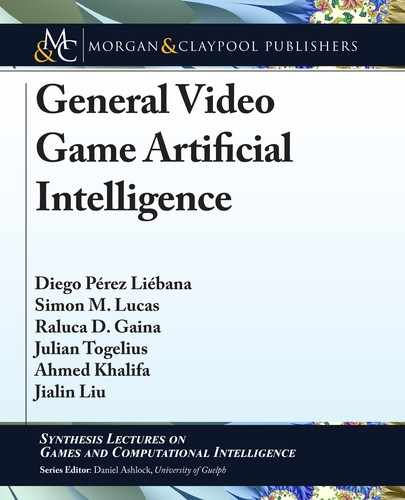Book Description
Research on general video game playing aims at designing agents or content generators that can perform well in multiple video games, possibly without knowing the game in advance and with little to no specific domain knowledge.
The general video game AI framework and competition propose a challenge in which researchers can test their favorite AI methods with a potentially infinite number of games created using the Video Game Description Language. The open-source framework has been used since 2014 for running a challenge. Competitors around the globe submit their best approaches that aim to generalize well across games. Additionally, the framework has been used in AI modules by many higher-education institutions as assignments, or as proposed projects for final year (undergraduate and Master's) students and Ph.D. candidates.
The present book, written by the developers and organizers of the framework, presents the most interesting highlights of the research performed by the authors during these years in this domain. It showcases work on methods to play the games, generators of content, and video game optimization. It also outlines potential further work in an area that offers multiple research directions for the future.
Table of Contents
- Preface
- Acknowledgments
- Introduction
- VGDL and the GVGAI Framework
- Planning in GVGAI
- Frontiers of GVGAI Planning
- Learning in GVGAI
- Procedural Content Generation in GVGAI
- Automatic General Game Tuning
- GVGAI without VGDL
- GVGAI: What's Next?
- Bibliography (1/3)
- Bibliography (2/3)
- Bibliography (3/3)
- Authors' Biographies
- Blank Page (1/3)
- Blank Page (2/3)
- Blank Page (3/3)
